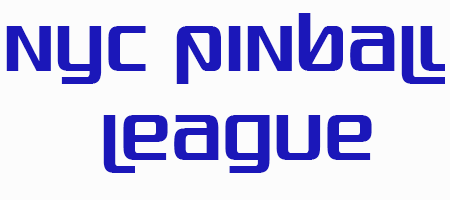The Unused Blueprint in Your Back Pocket
The tines of the fork feel cold against my thumb. It’s a heavy, ornate piece of silver, the kind that only comes out for holidays when the good china is retrieved from its tissue-paper tomb. My uncle, a man whose love is directly proportional to his volume, leans forward, his voice cutting through the gentle hum of family chatter.
And there it is. The Question. It’s not a question, really. It’s a judgment wrapped in a query. It carries the weight of an unspoken assumption: that the only valid reason to acquire a difficult skill is to use it as an escape hatch from a life you’re presumed to hate.
My mouth goes dry. A perfectly reasonable answer lodges itself somewhere behind my sternum, refusing to come out. What I want to say is complicated. What they want to hear is simple: “Soon.” Instead, I offer a weak smile and a non-committal shrug, turning my attention back to the mashed potatoes, suddenly fascinated by their texture. The moment passes, but the feeling doesn’t. It sticks to my ribs for days, a greasy film of self-doubt. Am I a fraud? A coward? I have this blueprint for a different life folded up in my back pocket, and I just… leave it there.
I’ve always been skeptical of people with “someday” projects. The friend who has the first three chapters of a novel sitting in a drawer for a decade. The cousin who owns a pristine set of woodworking tools but has never built anything more complex than a wobbly shelf. It’s a waste, I used to think. A failure of execution. And now, here I am, one of them. I spent 46 weeks-nearly a year-immersed in learning a craft. I understood volatility, I could read a chart, I could tell the difference between a genuine signal and market noise. And what did I do with it? I kept my salaried job with its predictable challenges and its bi-weekly direct deposits.
Weeks of Learning
Year Immersed
But that’s not right, is it? The narrative is wrong. I’m arguing with myself now, which is just about the only argument you can never truly lose, or win. The assumption is that Plan A (the day job) must be miserable and Plan B (the new skill) must be the savior. What if Plan A is… fine? What if it’s challenging and rewarding and pays the bills, and Plan B isn’t a plan at all? What if it’s something else entirely?
The Cost of Monetization
I used to believe every skill demanded monetization. I once got very good at baking sourdough. Friends and family raved, telling me I should sell it. So I tried. I drew up a 16-step business plan, costed out everything-the starter, the specialty flour, the parchment paper, the delivery boxes. I spent $676 on supplies to do a small-scale trial run.
Step Plan
Cost of Supplies
Within six weeks, I hated it. The pressure to produce, the logistics of delivery, the anxiety of a customer getting a loaf that didn’t have the perfect ear. It had transformed a meditative joy into a source of profound stress. I stopped baking for a year. That mistake cost me $676 and a lot of joy, but it taught me a lesson worth far more: monetizing a passion can be the fastest way to kill it.
Meditative, Fulfilling
Pressure, Anxiety
Learning to trade was different. It was never about the money, not really. It was about understanding the machine. The world is governed by vast, interlocking systems of capital and fear and greed, and I wanted to see the gears. I wanted to understand the language spoken in the silent, humming server farms where fortunes are made and lost in microseconds. I found a way to learn that treated it like a discipline, not a get-rich-quick scheme. The exercises in the trading game academy were more like strategic puzzles than lottery tickets. It was intellectual curiosity, the same impulse that makes people learn chess or a dead language.
Chloe’s Clocks: The Power of Interconnectedness
I have a friend, Chloe H.L., who restores antique grandfather clocks. It’s an absurdly specific, anachronistic skill. She spends her weekends with tiny tools, cleaning gears that have been silent for decades, coaxing a pendulum back into its steady, rhythmic swing. She has a catalog of 236 different types of tiny, irreplaceable screws. She can tell you the history of a clockmaker from the signature on a brass plate. Her full-time job? She’s a senior urban planner for the city. The two pursuits seem utterly disconnected.
Types of Screws
But she once told me that understanding the intricate, mechanical ecosystem of a clock-how one tiny, stuck gear can halt the entire system-gave her an entirely new mental model for understanding the flow of traffic, resources, and people in a city. She saw the feedback loops. She understood how a small intervention, like changing the timing of a single traffic light, could either regulate or destroy the rhythm of an entire district. Her hobby didn’t replace her career; it deepened it. It made her better at her job by providing a perspective no textbook on urban planning ever could. No one ever asks Chloe when she’s going to quit her job to open a clock shop. They just see it as a fascinating, impressive part of who she is.
Why is trading seen differently? Because it’s directly connected to money, we assume money must be its only point. We’ve been conditioned by hustle culture to see every waking moment as an opportunity for optimization and profit. A hobby is no longer a refuge; it’s an underperforming asset. The joy of learning for its own sake has been replaced by the anxiety of a return on investment. If you learn to code, you must build an app. If you learn photography, you must shoot weddings. If you learn to trade, you must become a day trader.



